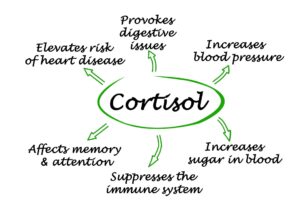
Constipation is a common condition where a person experiences difficulty in passing stools, or bowel movements. This condition can be caused by a variety of factors, including a lack of fiber in the diet, dehydration, and certain medications. One potential treatment for constipation is magnesium, a mineral that plays a crucial role in the body.
Magnesium is involved in many bodily functions, including muscle and nerve function, blood sugar regulation, and bone health. It also helps to regulate bowel movements by drawing water into the colon and softening stool, making it easier to pass. Because of these properties, magnesium is sometimes used as a natural laxative to help relieve constipation.
There are many different types of magnesium supplements available on the market, including magnesium oxide, magnesium citrate, and magnesium glycinate. Each type of magnesium supplement may have slightly different effects on the body, so it is important to choose the right one for your needs.
Magnesium oxide is one of the most commonly used forms of magnesium for constipation. This form of magnesium is not very well absorbed by the body, which means that it stays in the intestines longer and draws more water into the colon. This can help to soften stool and make it easier to pass. However, magnesium oxide can also cause diarrhea in some people, so it is important to start with a low dose and gradually increase it until you find the right amount for your body.
Magnesium citrate is another popular form of magnesium for constipation. This form of magnesium is more easily absorbed by the body than magnesium oxide, which means that it may be less likely to cause diarrhea. However, magnesium citrate may also be less effective at drawing water into the colon, so it may not be the best option for everyone.
Magnesium glycinate is a third type of magnesium supplement that may be helpful for constipation. This form of magnesium is bound to the amino acid glycine, which makes it more easily absorbed by the body than other forms of magnesium. However, magnesium glycinate may not have as strong a laxative effect as magnesium oxide or magnesium citrate.
In addition to taking magnesium supplements, there are other steps you can take to help relieve constipation. Drinking plenty of water, eating a high-fiber diet, and getting regular exercise can all help to soften stool and make it easier to pass. You may also want to try using a stool softener or laxative, although these should only be used under the guidance of a healthcare professional.
It is important to note that while magnesium can be a helpful natural remedy for constipation, it is not a cure-all. If you are experiencing chronic constipation, it is important to talk to your healthcare provider to rule out any underlying medical conditions that may be causing the problem. Your healthcare provider can also help you determine the best course of treatment for your individual needs.
In summary, magnesium can be a helpful natural remedy for constipation due to its ability to draw water into the colon and soften stool. However, it is important to choose the right type of magnesium supplement for your needs, and to use it under the guidance of a healthcare professional. Drinking plenty of water, eating a high-fiber diet, and getting regular exercise can also help to relieve constipation.




